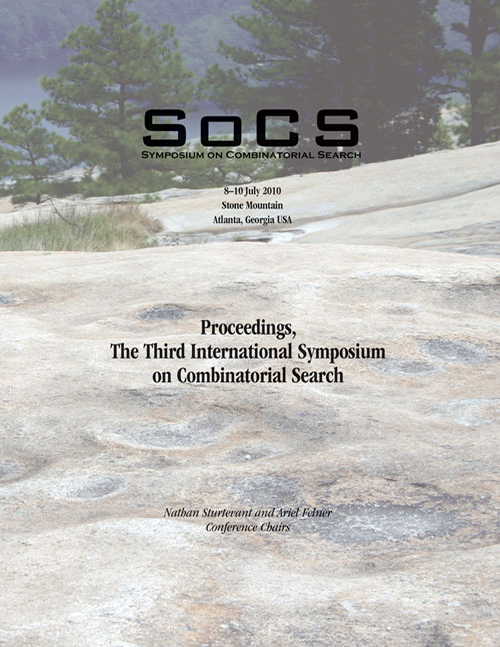A Comparison of Greedy Search Algorithms
DOI:
https://doi.org/10.1609/socs.v1i1.18182Keywords:
Heuristic Search, Satisficing Search, Beam Search, Best-first Search, Empirical AnalysisAbstract
We discuss the relationships between three approaches to greedy heuristic search: best-first, hill-climbing, and beam search. We consider the design decisions within each family and point out their oft-overlooked similarities. We consider the following best-first searches: weighted A*, greedy search, ASeps, window A* and multi-state commitment k-weighted A*. For hill climbing algorithms, we consider enforced hill climbing and LSS-LRTA*. We also consider a variety of beam searches, including BULB and beam-stack search. We show how to best configure beam search in order to maximize robustness. An empirical analysis on six standard benchmarks reveals that beam search and best-first search have remarkably similar performance, and outperform hill-climbing approaches in terms of both time to solution and solution quality. Of these, beam search is preferable for very large problems and best first search is better on problems where the goal cannot be reached from all states.

